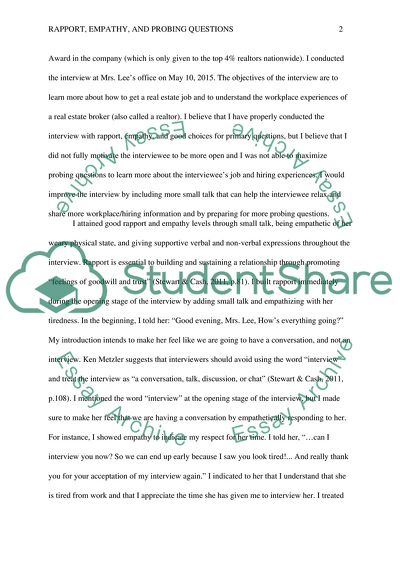Cite this document
(The Importance of Rapport, Empathy, and Probing Questions Essay Example | Topics and Well Written Essays - 2250 words, n.d.)
The Importance of Rapport, Empathy, and Probing Questions Essay Example | Topics and Well Written Essays - 2250 words. https://studentshare.org/journalism-communication/1878505-career-interview-analytical-paper
The Importance of Rapport, Empathy, and Probing Questions Essay Example | Topics and Well Written Essays - 2250 words. https://studentshare.org/journalism-communication/1878505-career-interview-analytical-paper
(The Importance of Rapport, Empathy, and Probing Questions Essay Example | Topics and Well Written Essays - 2250 Words)
The Importance of Rapport, Empathy, and Probing Questions Essay Example | Topics and Well Written Essays - 2250 Words. https://studentshare.org/journalism-communication/1878505-career-interview-analytical-paper.
The Importance of Rapport, Empathy, and Probing Questions Essay Example | Topics and Well Written Essays - 2250 Words. https://studentshare.org/journalism-communication/1878505-career-interview-analytical-paper.
“The Importance of Rapport, Empathy, and Probing Questions Essay Example | Topics and Well Written Essays - 2250 Words”. https://studentshare.org/journalism-communication/1878505-career-interview-analytical-paper.


